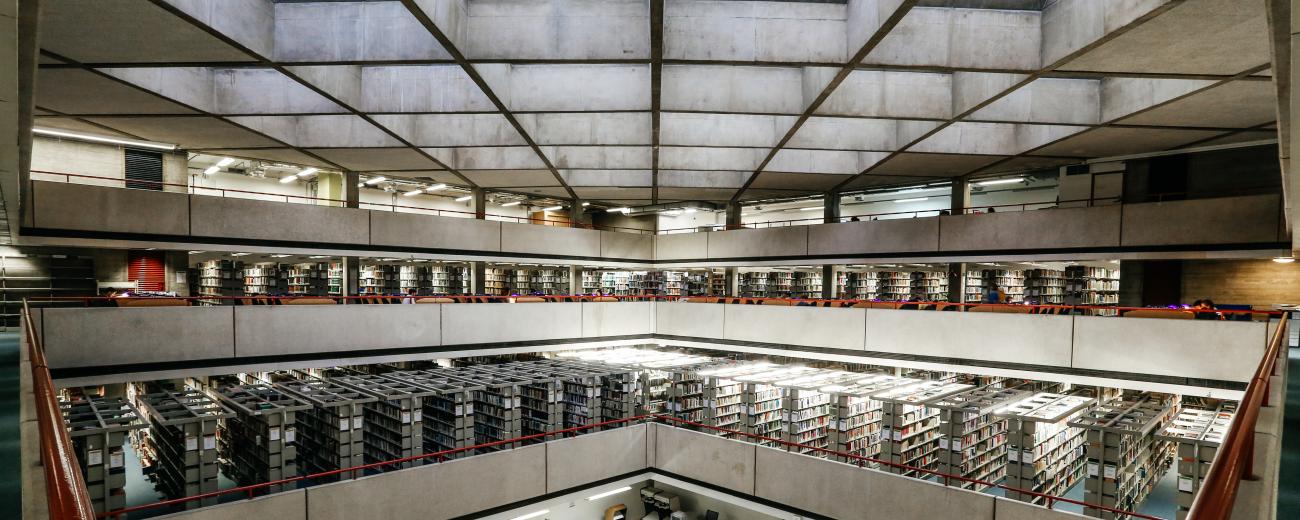Electronic Resources Policy


Introduction
The Library will make resources available in electronic format wherever it is appropriate to do so, taking into account teaching and research needs, cost effectiveness, technical requirements, user authentication and licensing and preservation issues.
1. Purchasing
- The Library seeks to purchase electronic resources within nationally negotiated agreements e.g. JISC, CHEST, NESLi2
- Where these agreements are not available purchase of resources will be on a direct basis with the supplier or, if terms are more favourable, as part of a purchasing consortium
1.1 Databases
- The Library will purchase research tools (e.g. bibliographies and reference works) to support the teaching and research needs of the School
- Databases of multimedia formats (e.g. images, sound and data) will be purchased to support the teaching and research needs of the School
- Full text databases will be purchased to support the teaching and research needs of the School
- Freely available databases, negotiated on behalf of the UK Higher Education community will be made available where they support the teaching and research needs of the School
1.2 Electronic journals
The Library follows an "electronic first" policy for the purchase of new journals.
1.2.1 New journals
- Will be purchased in print and electronic format (when available) where a title specifically relates to African, Asian or Middle Eastern studies
- Will be purchased in e-only format where a title is required to support the teaching needs of the School, but it does not specifically relate to African, Asian or Middle Eastern studies
1.2.2 Ejournal Backfiles
- Backfiles of e-journals will be purchased when the title is considered essential for the teaching and research needs of the School and when a backfile is available via an approved vendor
1.2.3 Packages/Big Deals
- E-journal packages will be purchased where they offer better value for money than purchasing single titles, though the content is usually decided by the supplier and is non-negotiable
1.3 E-books
- Electronic versions of books will be purchased as additional copies for books in high demand where they are available
- Preferences:
- Purchase from a single vendor – library users only need to learn one interface and rights
- One off purchase instead of leasing & associated recurrent costs
- Vendors who allow printing and downloading with minimal restrictions
- Electronic versions of reference works will be purchased to support the teaching and research needs of the school ( see section 1.1 Databases )
- Purchased e-books will be added to the Library catalogue
2. Cancellation
- Usage of e-resources will be monitored and databases with low usage may be cancelled
- Price increases and changes of supplier or content may result in cancellation of subscription
2.1 Cancellation of print subscriptions
- Cancellation of print subscriptions will be considered when ownership of the electronic version or perpetual access can be guaranteed and when the latter does not omit any text or images found in the printed format
- Print subscriptions will be retained where there is a strong demand for browsing of current information. Titles where format or image quality are important may also be retained in print
- Our responsibilities as a UK National Research Library will influence cancellation decisions
3. Access to e-resources
- Where possible, access to e-resources will be negotiated to allow "walk-in" access for all SOAS Library members and off-campus access for all SOAS students and staff
- SOAS Library users must agree to abide by the terms of use of the various resources made available to them
- Computers will be made available to provide access to e-resources for all users in the Library, although printing will not be supported for external users
- The Library will liaise with the IT Department to provide access for SOAS students and staff in as user-friendly manner as possible, adopting new technologies as appropriate
- All new databases will be listed on the Library web-site
- New resources will be added to resource discovery tools and catalogued as required
4. Selection criteria
- The library purchases electronic resources to support the teaching and research needs of the School
- Content should be relevant to more than just a few users
- Overlap with existing subscriptions should be kept to a minimum. Where there is substantial overlap with other electronic resources the continuation of subscriptions for overlapping electronic resources needs to be justified
- There will be minimal requirement for special set up or software installation
- Electronic resources should be web based products
- Electronic resources can be readily supported by library staff, without the need for a high level of subject knowledge
- Site-wide licences are preferred with no restrictions on number of concurrent users
- Shibboleth is the preferred method of user authentication
- The library expects the vendor to supply designated standard usage statistics on request
- Availability of funding will limit the purchase of electronic resources, with particular consideration needed when purchasing ongoing subscriptions
- Free trials of new resources should be co-ordinated by the E-services team
5. Collection Development Policy: SOAS Research Online
- SOAS Research Online is a free, publicly accessible repository of the research outputs of the School of Oriental and African Studies
- The repository contains both full text papers and metadata only (descriptive) records of research carried out by SOAS staff members
- Full text materials will be made available where copyright allows otherwise the reference details can be deposited and a link to the online location of the research paper will be included (if available)
- Library staff manage and maintain the database in liaison with the Pro-Director and staff in the Research and Enterprise Office
- Current policies regarding the repository are available online at SOAS Research Online policies